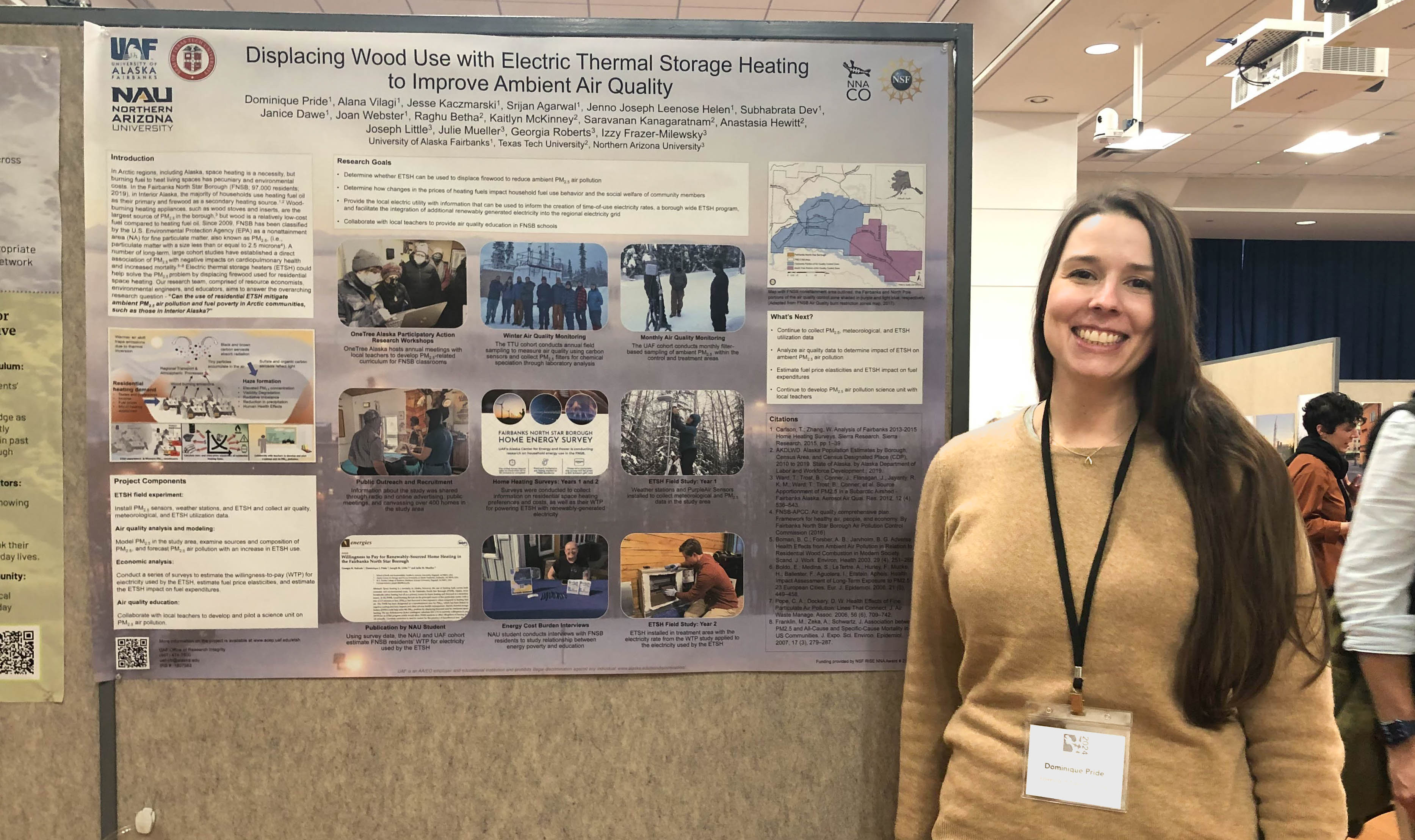Exploring the meaning of true collaboration at the NNA meeting
April 4, 2024

Dominique Pride presents her research project at a poster session and art exhibit during the 2024 Navigating the New Arctic Community Meeting in Washington, D.C. in March.
ACEP members working on projects within the National Science Foundation’s Navigating the New Arctic initiative were among the attendees to explore what true collaboration means at a recent meeting in Washington, D.C.
Held by the NNA Community Office, the 2024 Navigating the New Arctic Community Meeting brought together Arctic Indigenous community members, NNA researchers and decision-makers to discuss the state of research and research relations within and beyond the NNA initiative.
The theme of the 2024 meeting was “Uummatiñ Iñuuruq: Collaborating for equitable Arctic research, engagement and policy.”
During the three-day meeting, participants contributed to conversations on conducting equitable research. Community members shared their experiences and knowledge, researchers spoke to project successes and failures, and many discussed how to move forward with intentionality.
ACEP’s Dominique Pride showcased her NNA project on electrifying home heating in order to improve ambient air quality. In a collaboration with Northern Arizona University and Texas Tech University, Pride explores the environmental and economic implications of displacing wood use with electric thermal storage heating. Her poster was featured in a mixed-media poster session, where exhibits of photographs, field films and cyanotypes inspired holistic conversations around the research.
ACEP’s affiliate Mohammad Heidari Kapourchali organized a session to share strategies and research for improving resilience against wildfires in the Arctic. Several researchers presented their work for the Foundations for Improving Resilience in the Energy Sector Against Wildfires on Alaskan Lands, also known as the FIREWALL project.
Michelle Wilber of ACEP and Jennifer Schmidt of the UAA Institute of Social and Economic Research presented their research project, “Electric Vehicles in the Arctic (EVITA) – Interactions with Cold Weather, Microgrids, People, and Policy.” Wilber shared the project’s outcomes, including a web-based calculator that can determine the monetary and carbon cost of charging an electric vehicle in Alaska.
ACEP’s Savannah Crichton, who works on outreach and data collection for EVITA, appreciated the meeting’s focus on interdisciplinary research that incorporates community voices, intergenerational knowledge sharing and artistic collaboration at the meeting.
“Seeing a shared commitment to equitable research from all sides was really powerful,” she said.
Pride agrees with Crichton.
“[My] big takeaway from the NNA annual community meeting is that researchers, including myself, need to do a better job of understanding the cultures of the communities we work in and getting input from community members during the formation of the research questions, goals and objectives to make sure the research is beneficial to the community,” Pride said.
The meeting opened a dialogue around what true collaboration means and left participants with a shared responsibility to something bigger than themselves — to each other.


